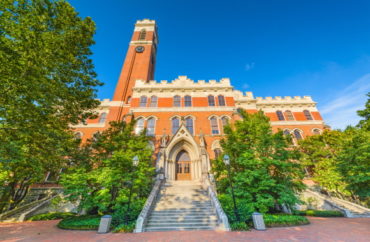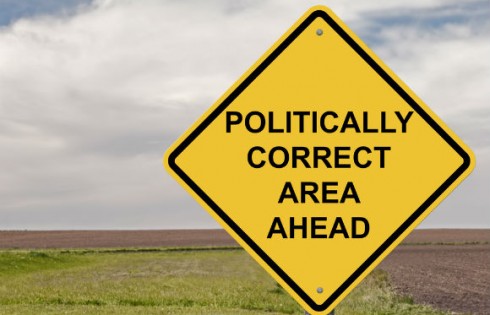
‘All A&S students should have access to engaging, innovative courses of which the honors seminars are emblematic’: university
Vanderbilt University recently announced plans to phase out its College Scholars Honors Program, replacing it with a new one that is more inclusive and “accessible to all students.”
The honors program will close at the end of the academic year, but current students will be able to remain in it until they graduate.
The private Tennessee university’s decision follows the closure of a number of honors programs at high schools across the United States.
“All A&S students should have access to engaging, innovative courses of which the honors seminars are emblematic,” the university’s College of Arts and Sciences stated in an email to The College Fix.
In place of the honors program, the college plans to introduce a new curriculum for all students that will “provid[e] a broad, deep and integrated educational experience,” according to the statement.
The college told The Fix its Cornelius Vanderbilt Scholarship, a full-tuition, academic merit-based award presented to roughly 250 students each year, will still be distributed.
The decision has come with backlash from students currently enrolled in the program, according to an article in the student newspaper, The Vanderbilt Hustler.
“I think everyone’s really outraged. Even though we’ll get to experience the program, it’s such an important part of our college experience …” Katerina Krizner, a co-president of the College Scholars Council, told the newspaper. “We haven’t heard any good reasons yet as to why they should be getting rid of it.”
One reason mentioned in minutes from an August faculty senate meeting was that the program is “inherently exclusionary,” according to the report.
But Krizner said she thinks Vanderbilt could have done things to make the program more inclusive rather than get rid of it completely.
The Fix contacted several students currently participating in the program as well as honors faculty members Daniel Morgan and Gabriel Colon twice for comment via email, but none responded.
MORE: Vanderbilt does not have to turn over private data to union: federal court
The National Collegiate Honors Council encourages higher education institutions to make their honors programs inclusive.
Located at the University of Nebraska-Lincoln, the council believes honors education “fosters creativity, leadership, and lifelong learning through innovative, student-driven experiences.”
“While some of the barriers to opportunity within society are beyond the control of those on any one college campus …, we as honors educators can make our campuses more welcoming places for underrepresented groups,” Andrew Cognard-Black, a sociology professor at St. Mary’s College of Maryland, wrote in a 2021 research article.
In his research, Cognard-Black, who serves on the editorial board for the council’s journal, reported many college honors programs do not have “proportional representation” of minority students, especially blacks and Hispanics, compared to the demographics of their student bodies.
However, he and co-author Art Spisak, a professor emeritus at the University of Iowa, identified strategies that may increase participation among low-income and racial minority students.
These include addressing misconceptions about what an honors student is and “creating environments open to the voices of divergent experiences on which critical inquiry depends,” according to their research.
He and Spisak wrote that questions about “access versus exclusion” in collegiate honors programs are difficult because the programs are exclusive.
“… the status conferred by providing access to some students while excluding most others from what is known in the social sciences as ‘positional good’: a desirable marketplace good that has value precisely because others cannot have it …” they wrote.
Cognard-Black did not respond to a request for comment via email from The Fix last week, asking about Vanderbilt and concerns about equity in honors programs.
But the elimination of honors programs is part of a wider trend, documented in the Wall Street Journal article, “Schools Cut Honors Classes to Address Racial Equality. It Isn’t a Quick Fix.” The report focused on the effect that the closures of high school honors programs have had on students in states such as California and Illinois, where this initiative began.
In these schools, “freshmen ranked class rigor and teacher expectations lower than prior years’ ninth graders,” according to the report.
Parents of the students told the newspaper they believe the honors programs were challenging their children more than they would by themselves, and seeing them be removed from the curriculum is a loss to the public school system as a whole.
MORE: Sacramento State U. to open college specifically for Native American students
IMAGE: Sean_Pavone/Shutterstock
Like The College Fix on Facebook / Follow us on Twitter






Please join the conversation about our stories on Facebook, Twitter, Instagram, Reddit, MeWe, Rumble, Gab, Minds and Gettr.